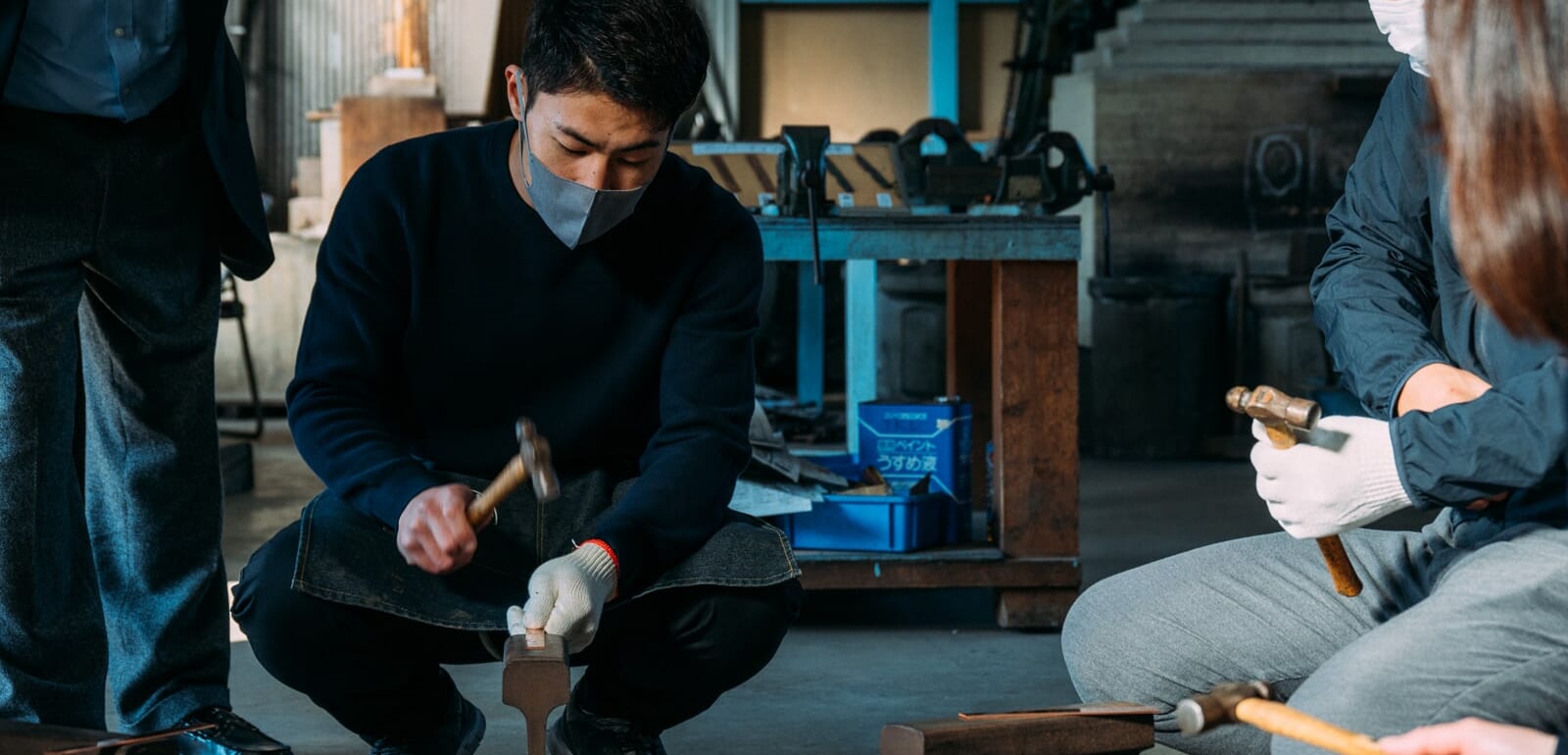A trip through four cities with Master Artisans, TAKUMI of Japan.
(Tsubame City and Sanjo City, Niigata Prefecture; Takaoka City, Toyama Prefecture; Echizen City, Fukui Prefecture)
Traveling on the TAKUMI Road
"TAKUMI" means Master Artisans. The Hokuriku region stretches from Niigata Prefecture (Echigo) through Toyama (Ecchu) and Fukui Prefectures (Echizen) and is an area that gets more snowfall than almost anywhere else on earth. During the long, cold winter season, farmers would make agricultural equipment and paper. Manufacturing in such a harsh environment forced the farmers to gradually refine the products into tools which are used by artisans to this day. Today, these traditional craftsmen and women continue to innovate and produce some of the best quality products in the world. Many of the masters who make these top-notch products can be found along the routes that connect these areas. These areas are also home to towns that flourished from the Edo period (1603-1868) through the Meiji period (1868-1912), when trade was based on cargo ships called Kitamae-bune.
Join us as we will travel along the Takumi Road, a road of artisans that connects the cities of Tsubame, Sanjo, Takaoka, and Echizen, to visit the places where artisans and history are alive.
Hinoura Hamono Kobo (Sanjo City, Niigata Prefecture)
Feel the Spirit of a Master Craftsman with Traditionally Made Swords
Japanese knife is said to be among the best in the world. The secret is the traditional forging techniques that began with the making of Japanese swords.
Hinoura Hamono Kobo is one of the best knife workshops in Japan, a place where these techniques continue to be used. This is a workshop where forging techniques that have been lost in other countries remain intact. The knives made here are completely forged by hand, and no two knives are exactly alike.
The techniques used to make the knives are based on traditional Japanese sword manufacturing techniques. Mr. Hinoura is the only craftsman to continue to use the technique perfectly. The temperature at which the blade is heated, the number of times it is beaten, and the strength of the beating are the very skills of a master artisan, accumulated through years of experience.
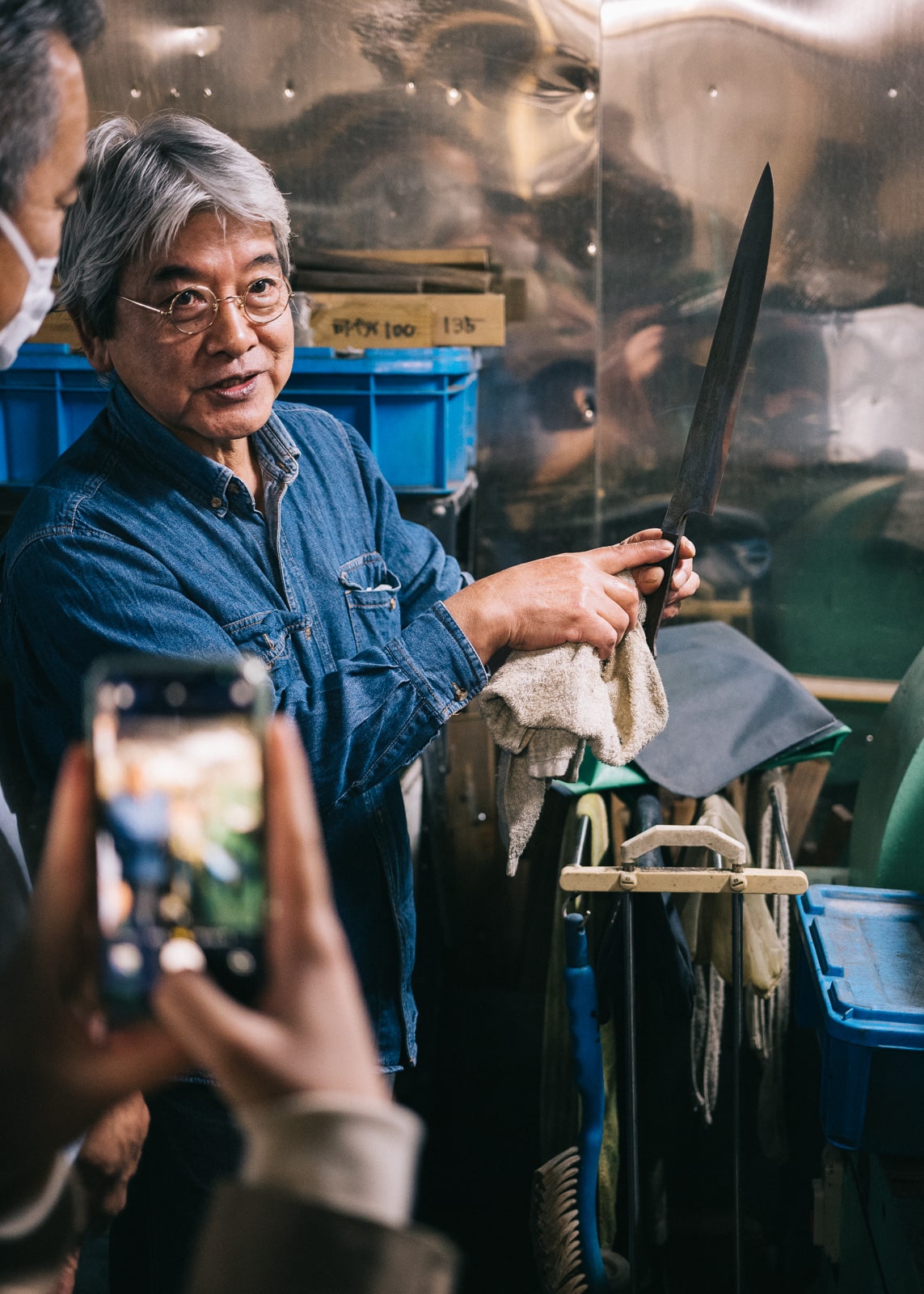
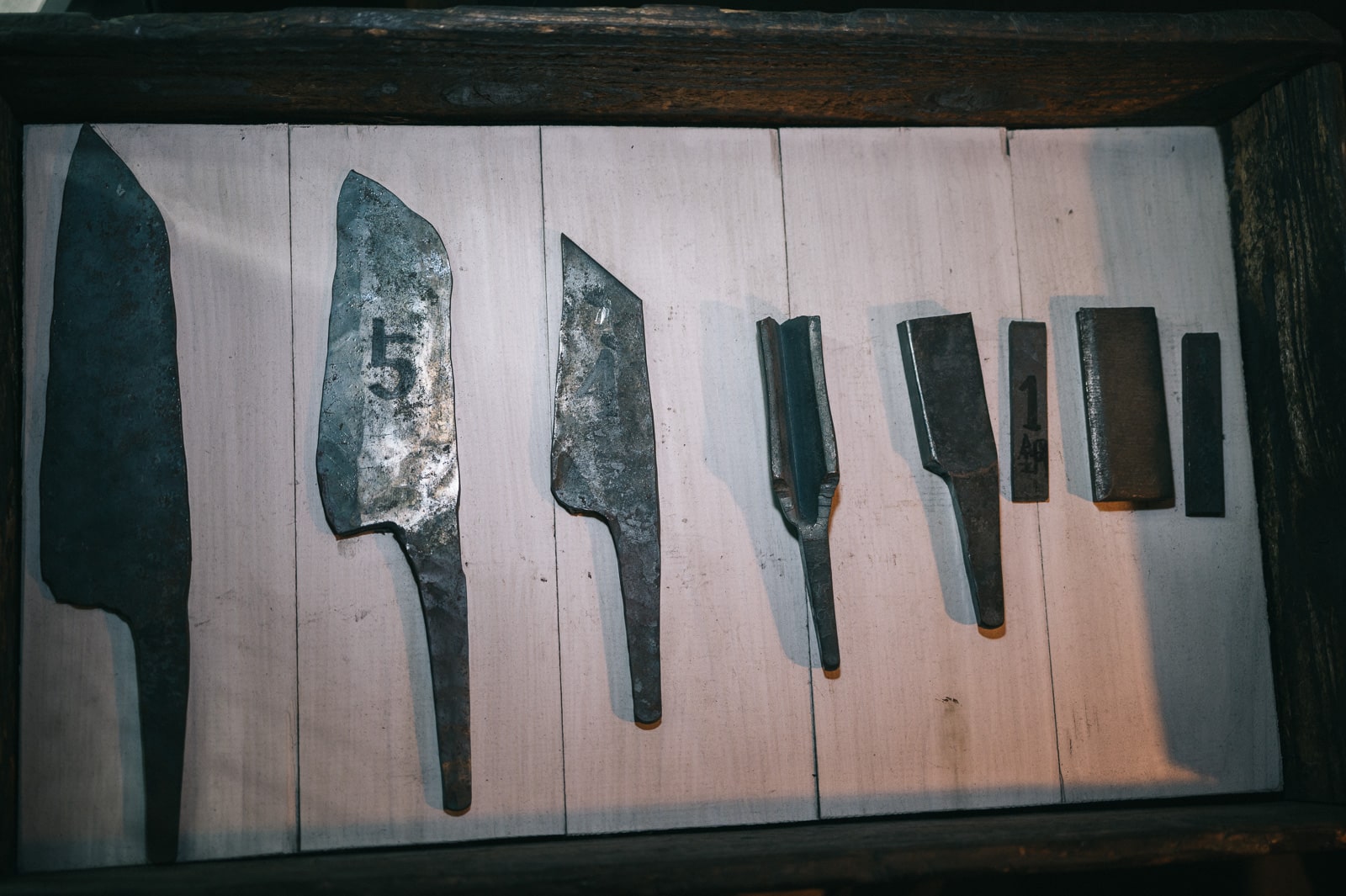
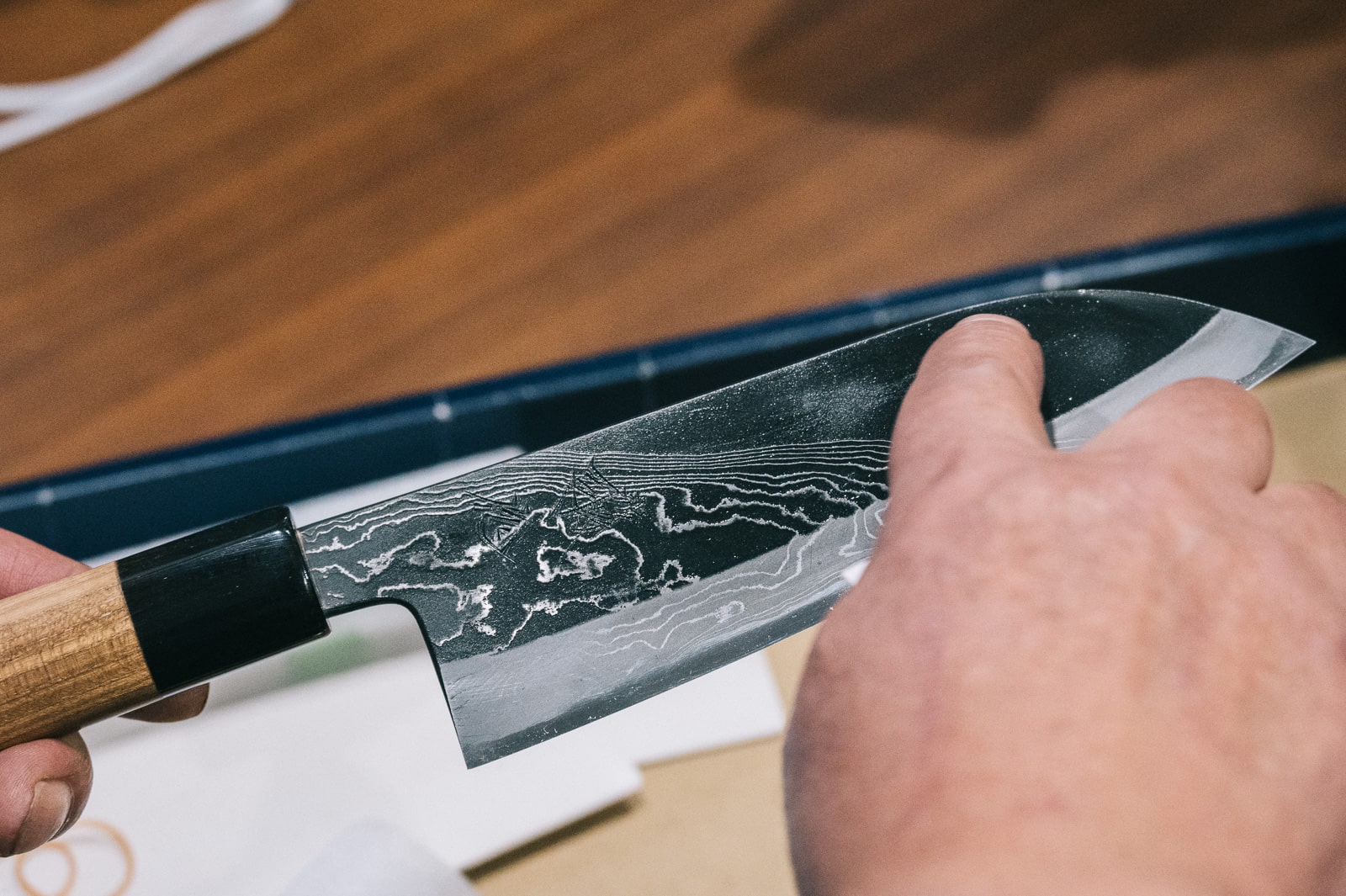
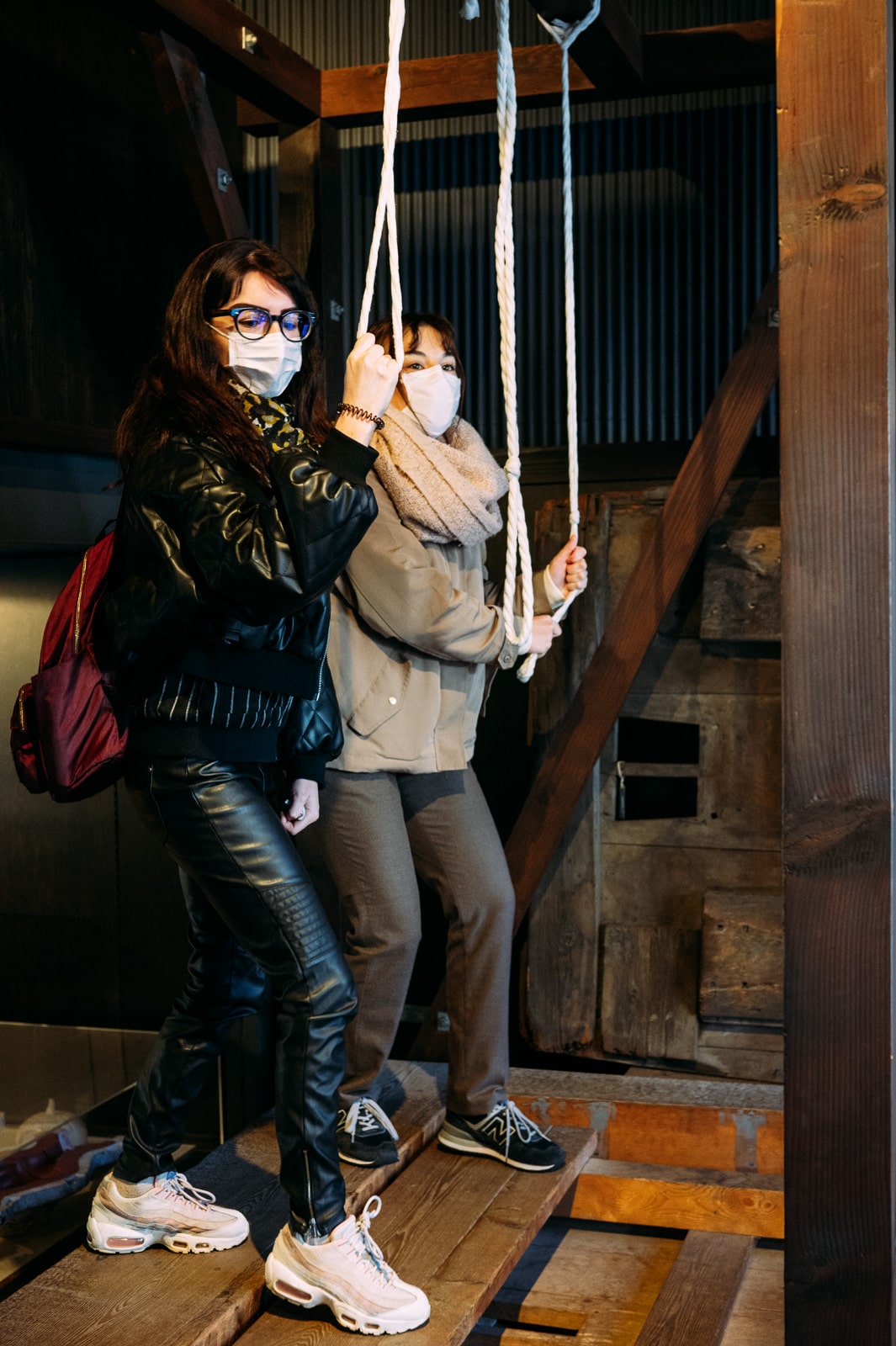
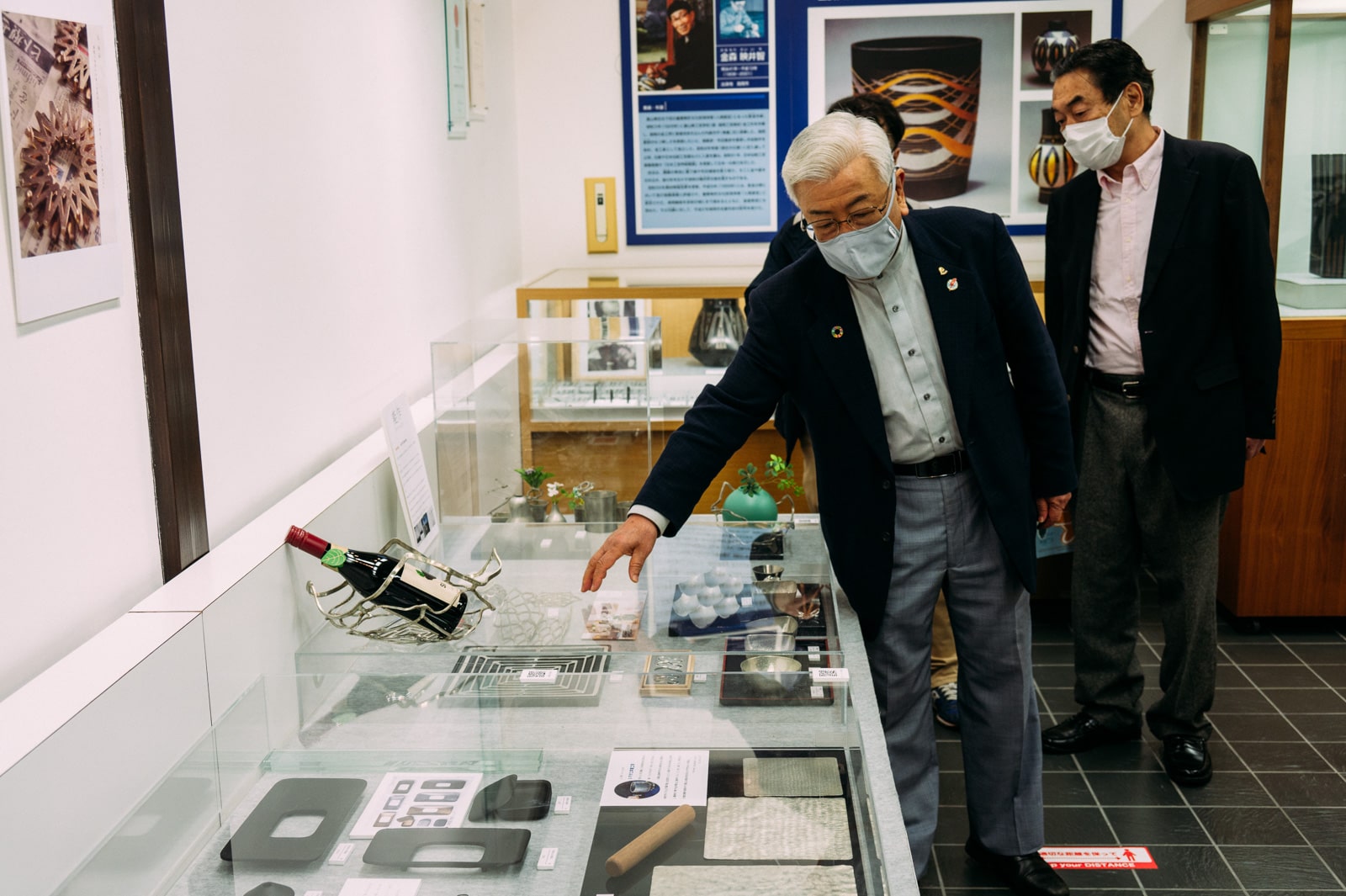
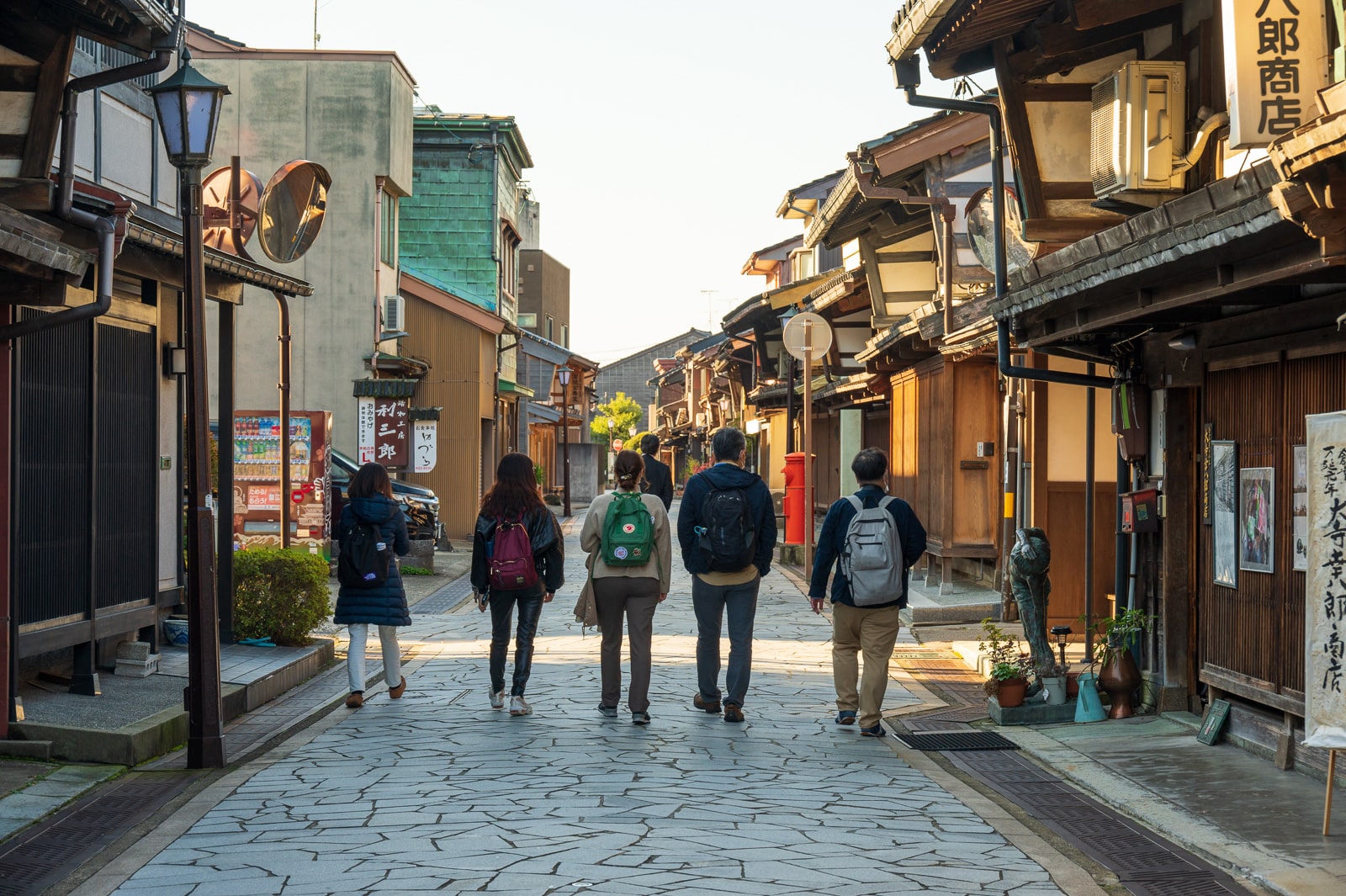
Kanayamachi (Takaoka City, Toyama Prefecture)
A Stroll through a Foundry Town with Traditional Streets
Takaoka City once prospered as a town second only to Kanazawa, which was ruled by the Maeda family, one of Japan’s most famous feudal lords. Buried deep in a corner of the city is Kanayamachi, the birthplace of Takaoka copperware. Cast ironworkers, under the patronage of the Maeda family, have gathered to manufacture cast iron here since the early Edo period.
The town prospered greatly as the center of the Takaoka copperware industry. Today, many of the workshops have moved to the suburbs, but the streets are still lined with stone-paved streets and traditional latticed houses (senbon-goushi-zukuri), carefully preserved with remnants of history and culture. Take a stroll through the town’s beautiful streets, and you’ll find a casting museum, stores where you can experience casting production and shopping, cafés, hotels, and restaurants that have been renovated from old houses. There’s plenty to enjoy in the town’s unique atmosphere.
The “Echizen Uchihamono” Experience
The “Echizen Uchihamono” Experience
The “Echizen Uchihamono” Experience
The “Echizen Uchihamono” Experience
The “Echizen Uchihamono” Experience
The “Echizen Uchihamono” Experience
Takefu Knife Village (Echizen City, Fukui Prefecture)
The “Echizen Uchihamono” Experience
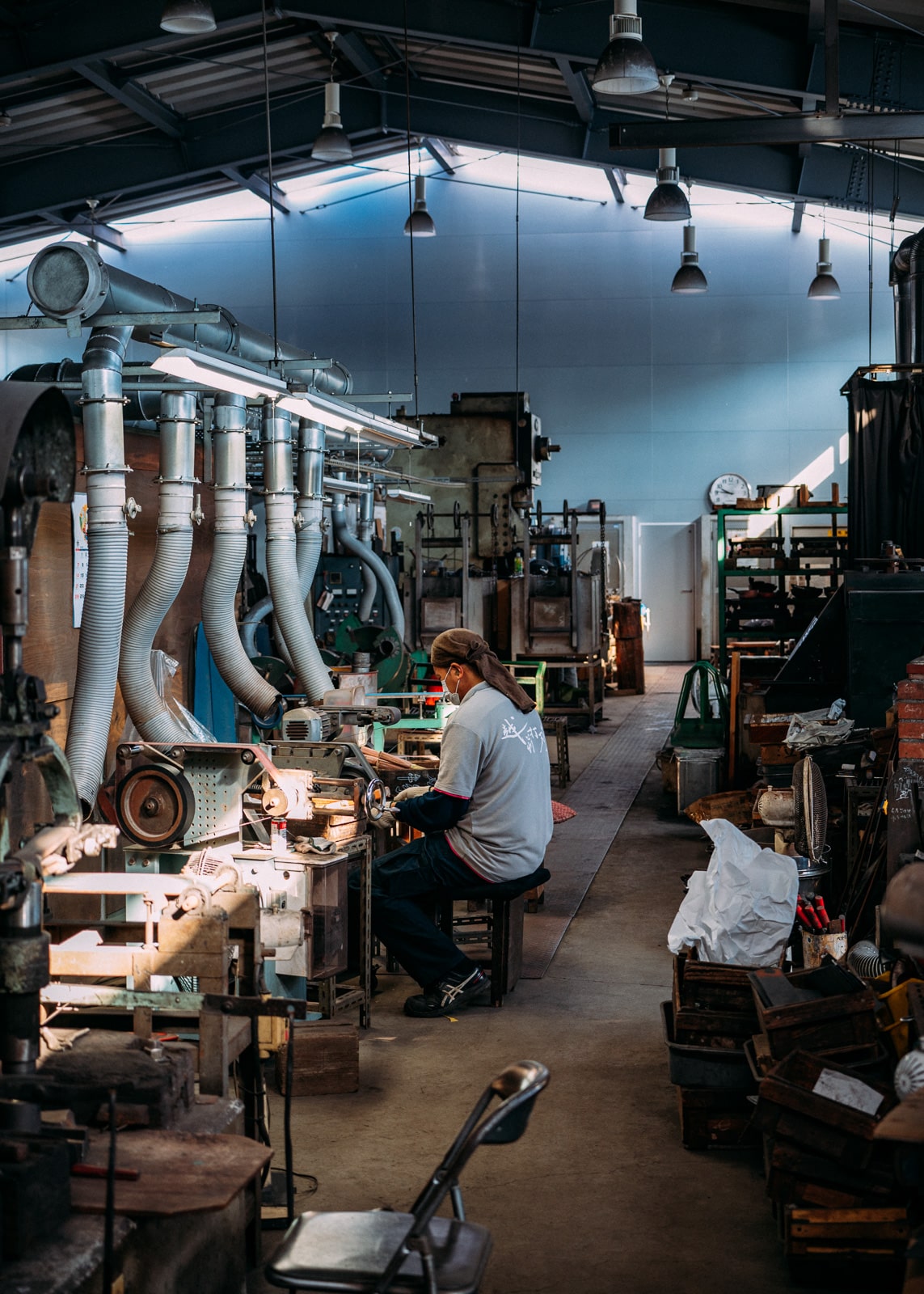
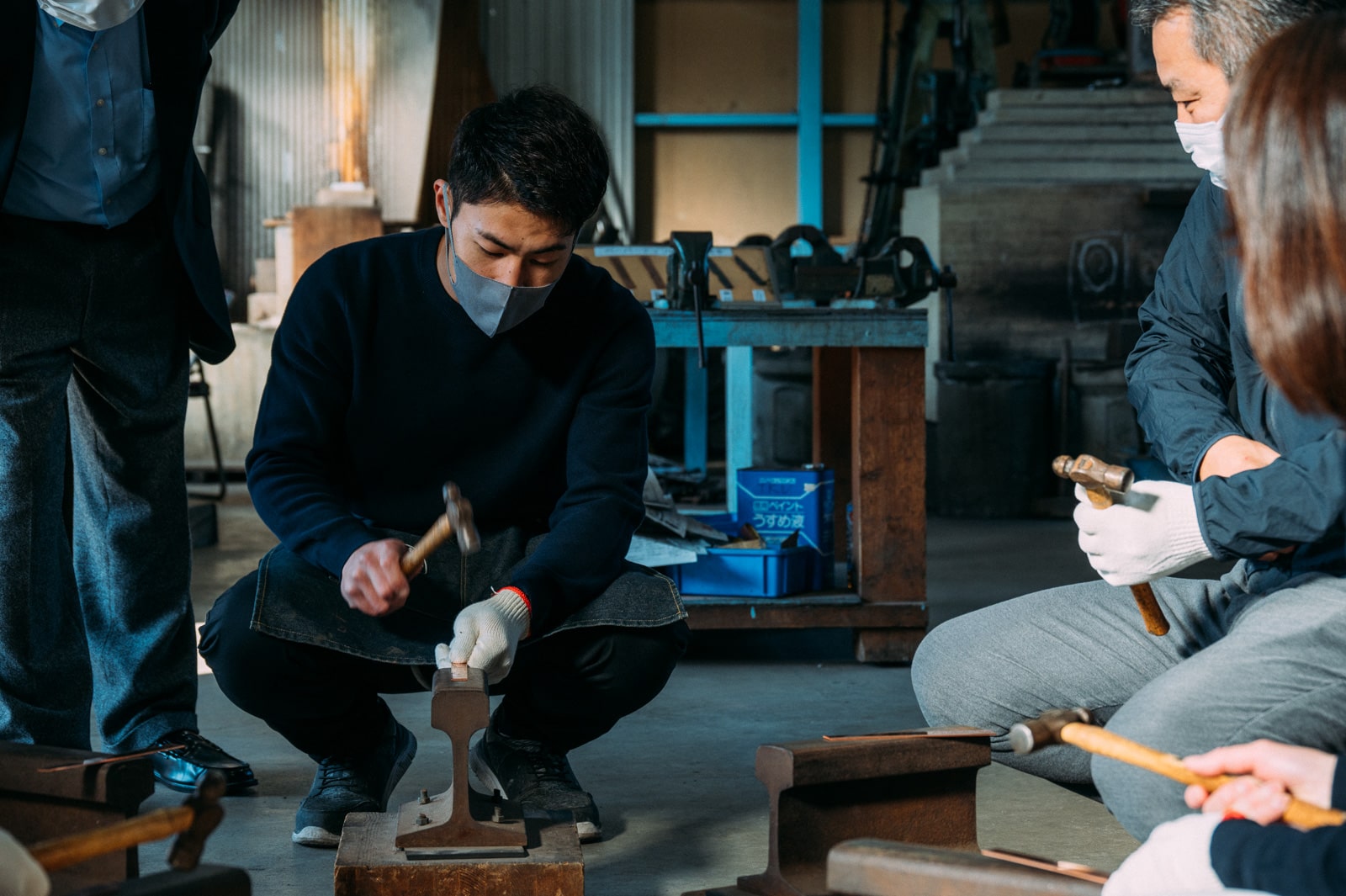
Takefu Knife Village is a workshop that manufactures and sells “Echizen Uchihamono” knives with a 700-year history. It is a workshop shared by 13 different companies, a rarity in Japan, where craftsmen from each company work hard together to produce their own products.
Thirteen knife companies each produce their own products in the workshop, and many craftsmen also manufacture and produce their own products here too. The companies once manufactured in the city center of Takefu before moving to this joint workshop in the suburbs. Partially because of the relocation of the workshop to Echizen City, but also because there was a desire not to let the “Echizen Uchihamono” decline. Companies that were once rivals came together to refine the skills and spirit of Echizen Uchihamono here, and the workshop is now producing blades that are recognized around the world.
In addition to a tour course where you can see many craftsmen at work, and a showroom full of artisan products, there are also various programs where you can experience the manufacturing of Echizen cutlery. Please come and experience the passion of the artisans.
Tsubame Industrial Materials Museum (Tsubame City, Niigata Prefecture)
Make your own Metalwork Tumbler
Tsubame Industrial Materials Museum in Niigata Prefecture, is the first industrial metal processing archives in Japan, a major industry of Tsubame City since the Edo period. Cutlery is now mass-produced, but its roots are in the Edo period when farmers used to make Japanese nails as a side job. Back then, farmers used to make Japanese nails, which later developed into the production of hammered copperware and smoking pipes before eventually turning into the cutlery production we know today.
The museum is also a historical archive to pass on the history and techniques of the craft. In the hands-on workshop, visitors can try their hand at a variety of metalworking techniques, such as hammering the surface of a pure copper tumbler to create a pattern. It is said that hammered copper tumblers can make beer foam finer and milk smoother. What are you waiting for? The perfect drinking vessel awaits you.
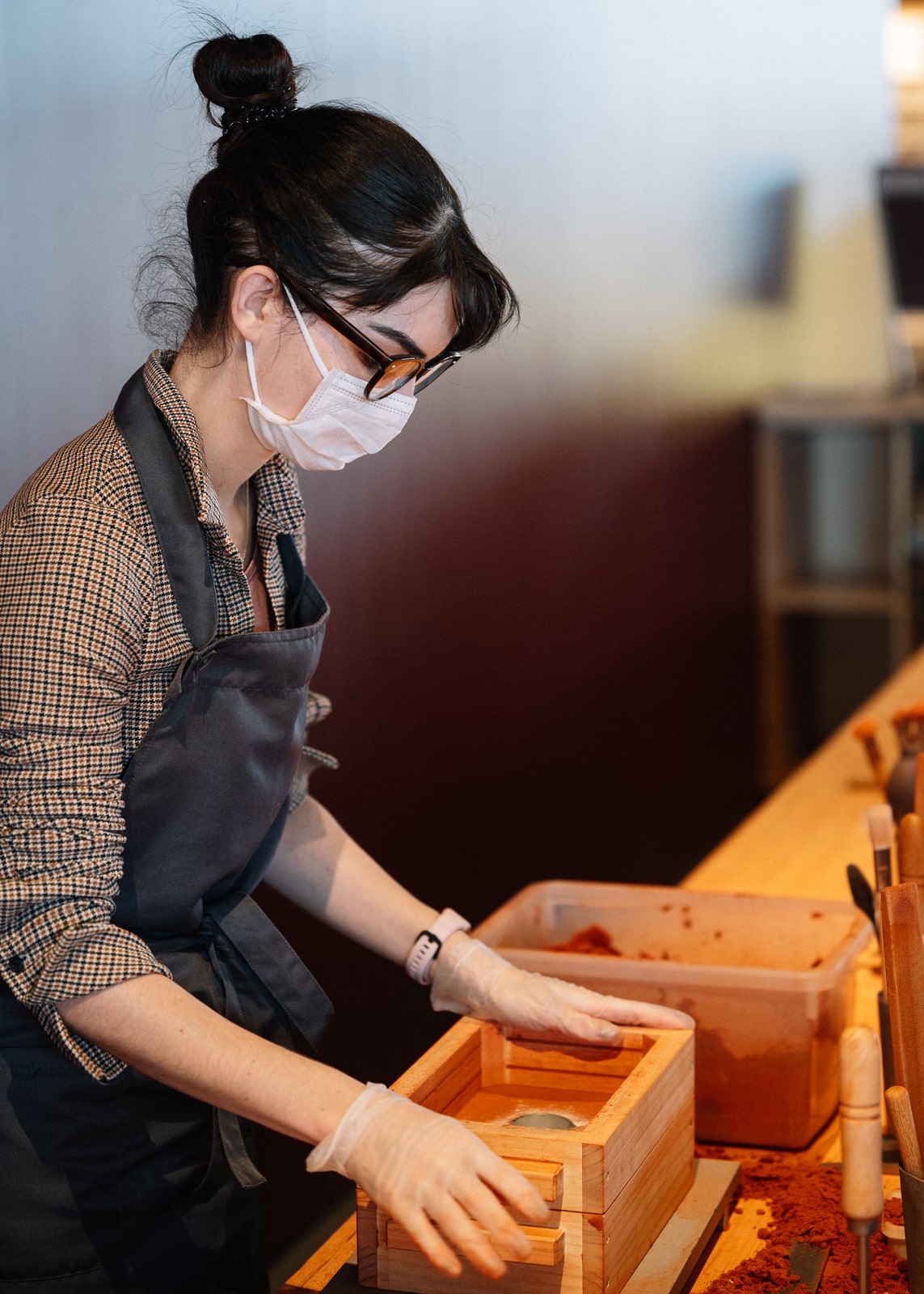
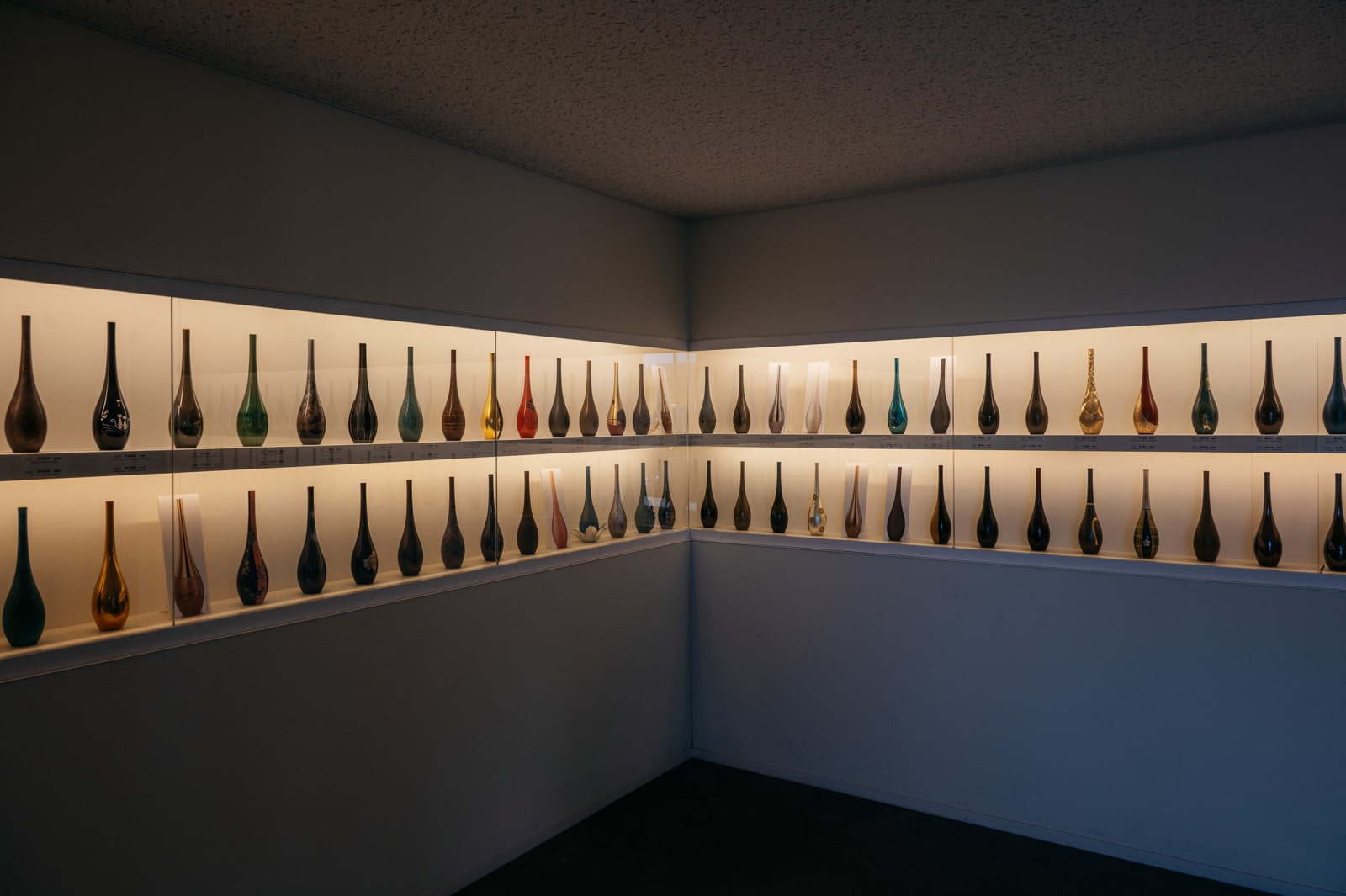
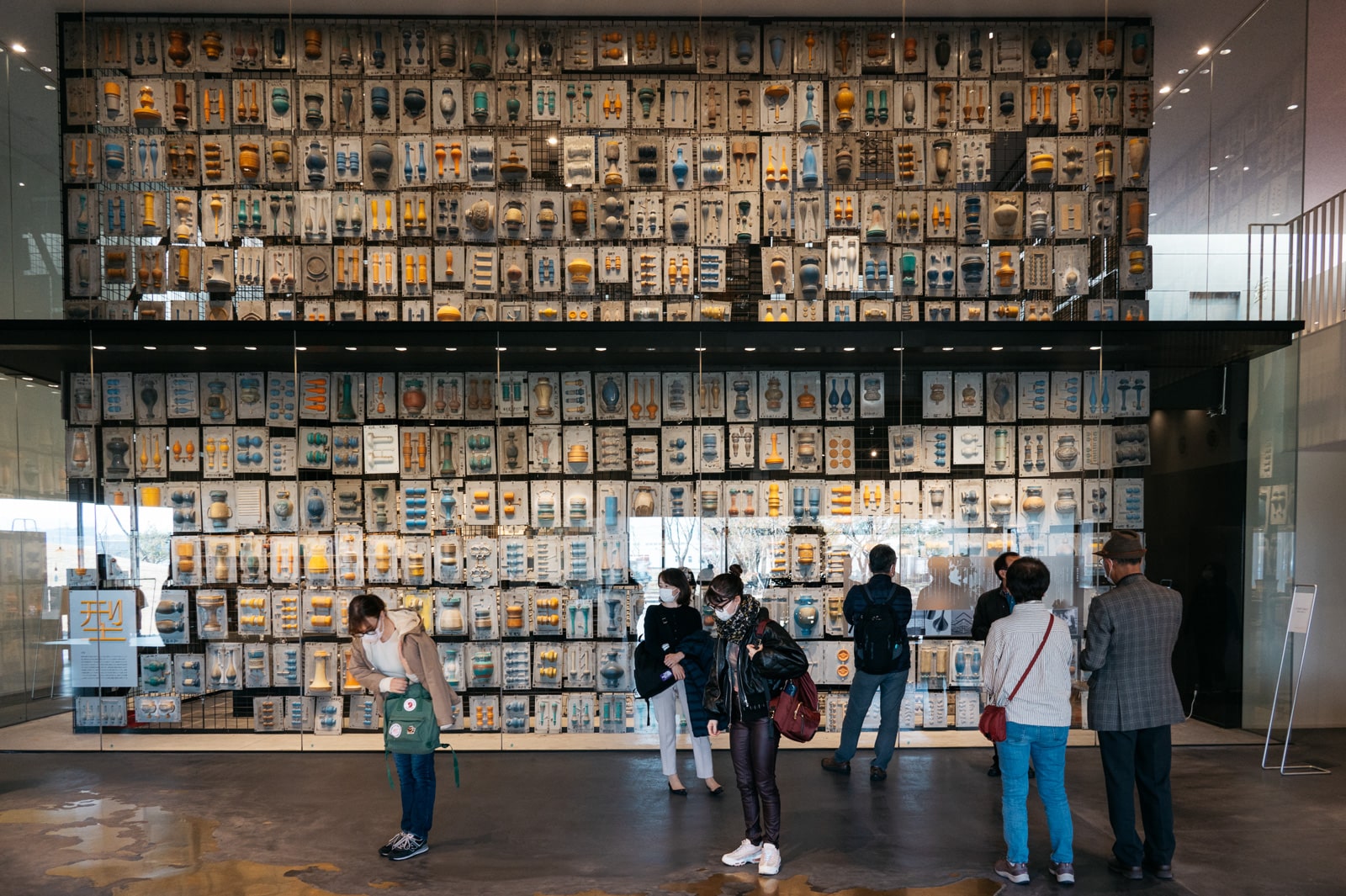
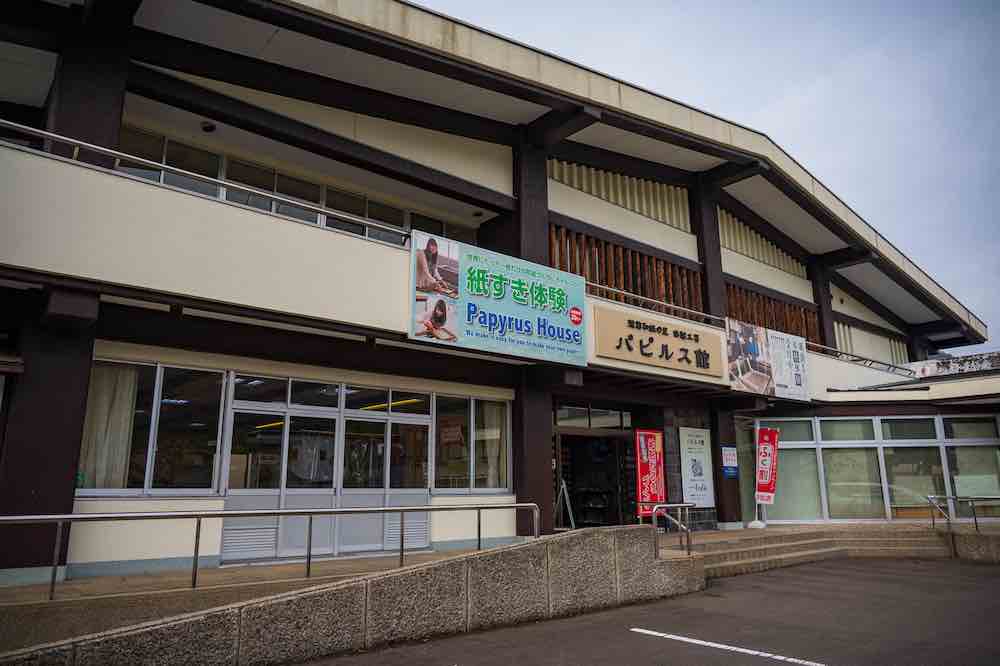
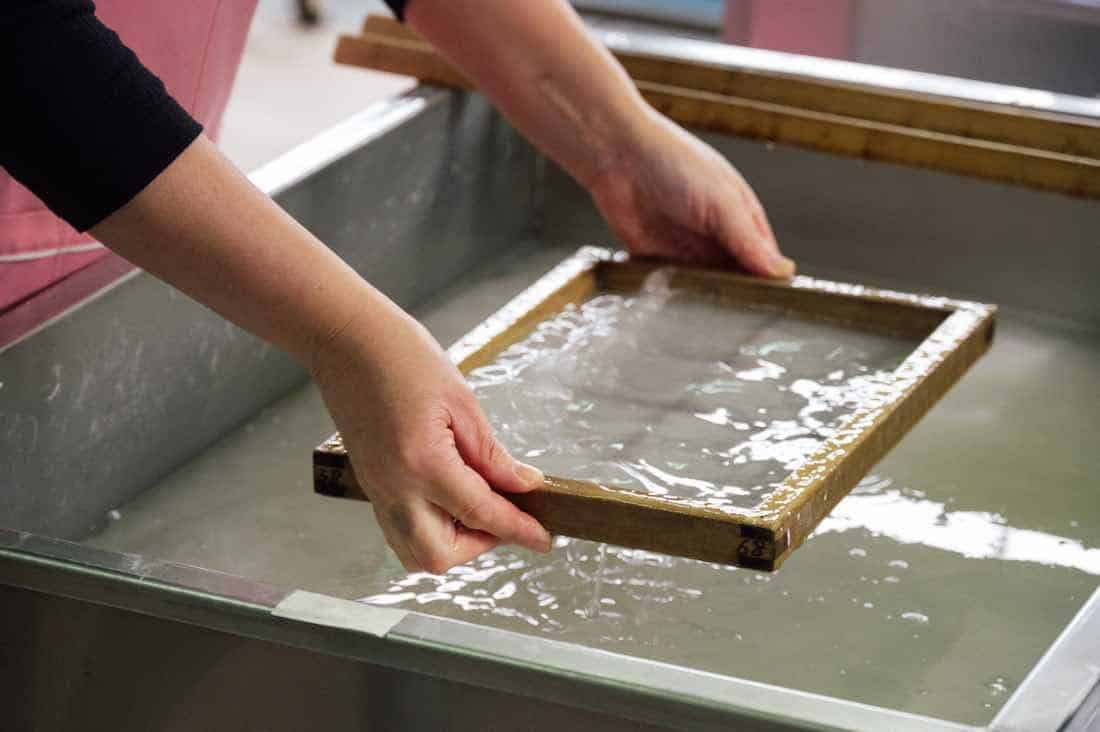
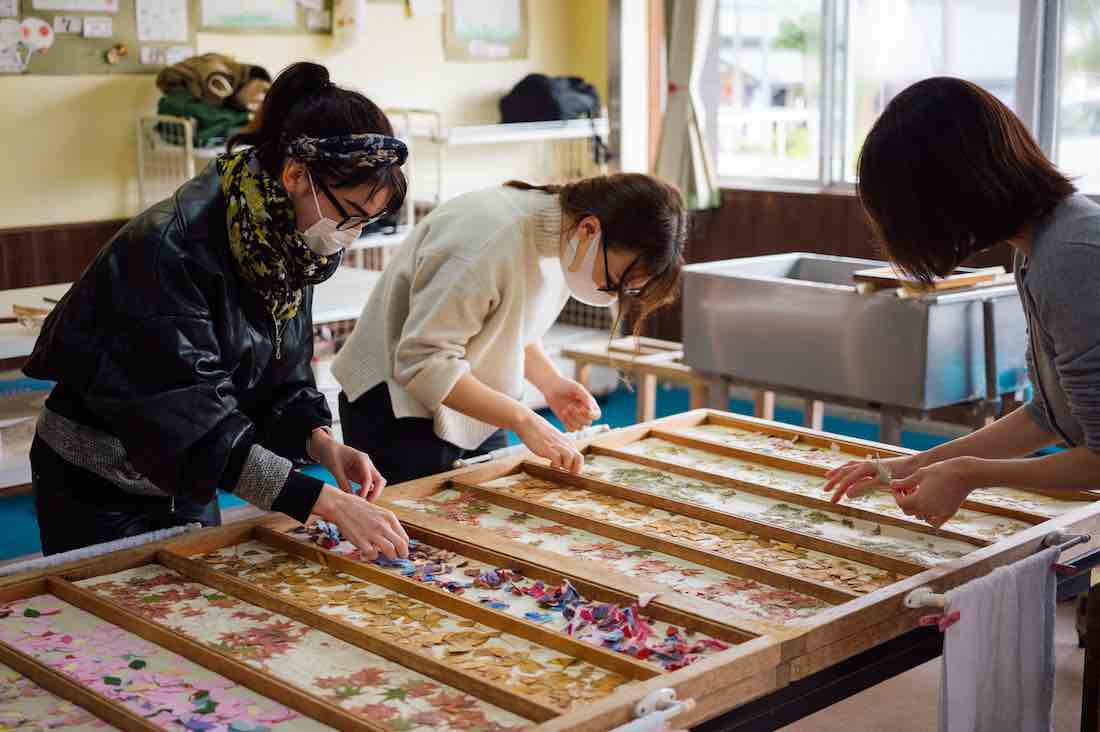
Iwano Heizaburo Seishisho Co., Ltd. (Echizen City, Fukui Prefecture)
Traditional Echizen Washi Paper Made in a Paper-Making Mountain Village
High-quality paper has been used for documentation since ancient times, notably by people in power for political purposes. High-quality workmanship is hard to imitate, which helps prevent forgery. The quality of Echizen washi is said to be the best in the country, a reputation they’ve carried to this day. In the mountains of Echizen City, there is a village of handmade Echizen washi workshops.
Iwano Heizaburo Seishisho Co., Ltd is nestled in the mountains of this village. Founded in the Meiji era (1868-1912), this workshop has a history of over 150 years and is one of the largest handmade washi workshops in Japan. Many handmade artisans make paper by hand in pairs, one sheet at a time, using a water tank filled with water and materials made from processed plant fibers, known as a “Sukibune”. One of the points that determine the quality of paper is its thickness. The thickness of the paper can only be determined by the long years of experience of the craftsmen, which is the true mark of a master.
Hand sanitizer sprays can be found at the entrance of stores, facilities and restaurants. Seating arrangements follow proper social distancing guidelines in restaurants. Masks required.
About Tsubame City, Niigata Prefecture
Tsubame City is in the center of Niigata Prefecture and is accessible by its nearest station, Tsubame-Sanjo Station, about 1 hour and 40 minutes from Tokyo via the Joetsu Shinkansen. It is a city of manufacturing with a thriving metal processing industry, and more than 90% of the Japan’s cutlery output is produced here.
About Sanjo City, Niigata Prefecture
Sanjo City is in the center of Niigata Prefecture and is accessible by its nearest station, Tsubame-Sanjo Station, about 1 hour and 40 minutes from Tokyo on the Joetsu Shinkansen. Sanjo City is adjacent to Tsubame City and is also a manufacturing town with a thriving metal processing industry. This city in particular is famous for its blades made by blacksmiths.
About Takaoka City, Toyama Prefecture
Takaoka City is located in the northwest of Toyama Prefecture, and is a region full of gorgeous nature like the mountainous areas in the west and Toyama Bay in the northeast. Takaoka is an area with over 400 years of history, and there are many traditional crafts, festivals, and historical buildings for you to explore.
About Echizen City, Fukui Prefecture
Echizen City is a city with a long history in Fukui Prefecture. In the Nara period (710-794), the national government of Echizen Province was located here, and the city flourished as a center of politics, culture, and economy. The area is home to many traditional craft workshops and townscapes that tell the story of a long, eventful history.
